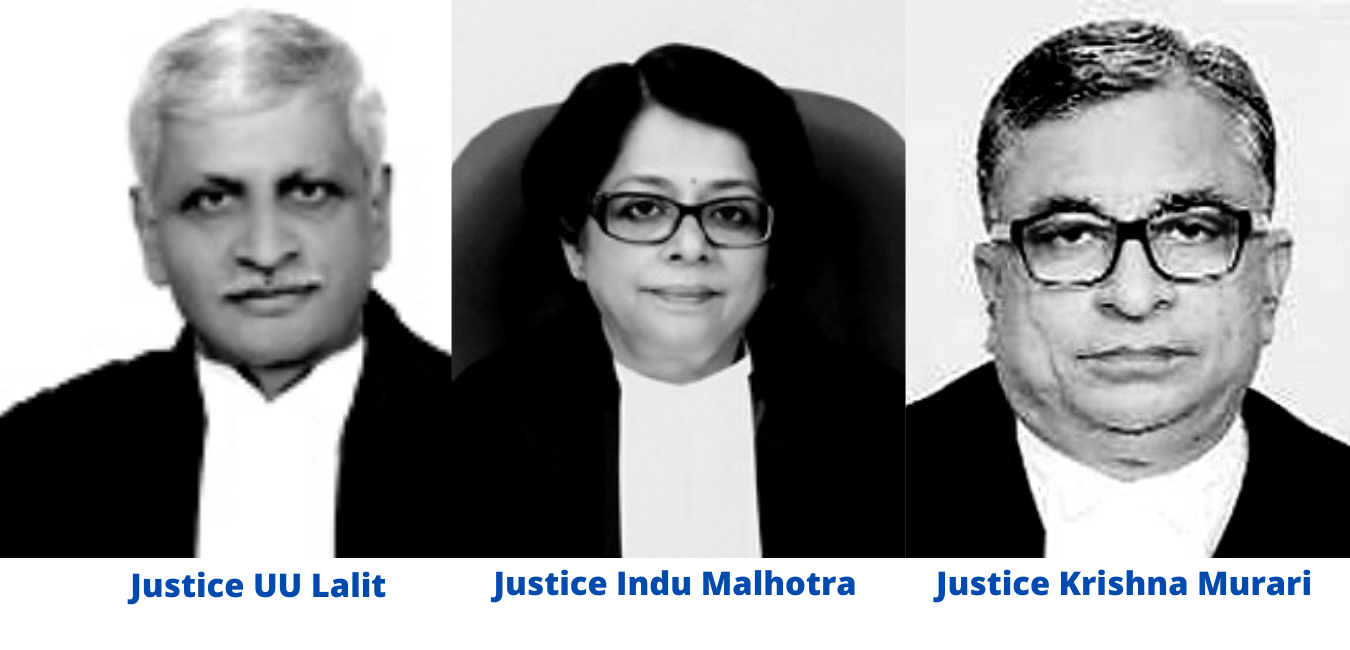Supreme Court Acquits Man Awarded Death Sentence For Dacoity and Murder

A three-judge bench of the Supreme Court has acquitted a person sentenced to death in a case of dacoity and murder.
Justices UU Lalit, Indu Malhotra & Krishna Murari in a judgment passed on January 5 [Hari Om @Hero V. State of U.P.] have noted that upon re-appreciation of the evidence on record, certain inconsistencies or infirmities existed in the deposition of the child witness, lone survivor, of the incident in which mother and three siblings were murdered.
The bench also touched upon it's decision of Suryanarayana Vs. State of Karnataka and noted the perspective from which the evidence of a child witness is to be considered.
"The caution expressed by this Court in Suryanarayana that “corroboration of the testimony of a child witness is not a rule but a measure of caution and prudence” is a well-accepted principle," the bench said.
Further, while adding that event though this Court had found in Suryanarayana that there were no doubts at all with regard to the veracity of the child witness, such doubts and defects were quite evident in the present matter.
The central issue in the case was that the Trial court convicted six accused, finding them guilty of offences viz. Sections 396 [Dacoity with murder], 412 [Dishonestly receiving property stolen in the commission of a dacoity] of the Indian Penal Code along with Section 3(2)(v) of the Scheduled Caste and Scheduled Tribes (Prevention of Atrocities) Act.
Hari Om alias Hero, one of the six accused was awarded death sentence for murdering the woman and her three children.
Following this, the High Court by way of its common judgment in reference affirmed the conviction of Hari Om and upheld the death sentence.
Supreme Court's Observations:
Court noted that while dealing with the features of the statement of the child witness, it was found that even though they get corroborated to some extent, certain inconsistencies or infirmities were evident from the record, including the manner in which his siblings were done to death.
The bench further noted that a comparison of the version of the child's statement given in court as against his statement recorded during investigation, inconsistencies were evident.
"Having culled out the essential features emerging from the record, we must state that we find it difficult to place reliance upon the testimony of PW5 Ujjwal and in our view, the said version can not be made the basis of conviction of Hari Om," the Supreme Court observed.
The court accepted appeals by Hari On and three other accused and set aside the orders of conviction and sentence recorded against them, thereby acquitting them of all charges levelled against them.
Click Here To Go To Judgment: Hari Om @ Hari Vs. State of U.P.
